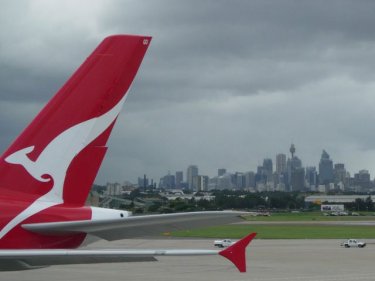As a stream of Australian travellers to Phuket ignore the warnings, the official Australian approach contrasts with the Thai Government's view that Bangkok and even the troubled northern provinces are rapidly returning to normal.
Alarmingly, Australians are being told: ''There is a high threat of terrorist attack in Thailand. We continue to receive reports that terrorists may be planning attacks against a range of targets, including tourist areas and other places frequented by foreigners.''
The Summary at smartraveller.gov.au says: ''We advise you to exercise a high degree of caution in Thailand due to the high threat of terrorist attack and the possibility of further violent civil unrest.
''A state of emergency is in effect covering 24 provinces, including Bangkok and surrounding provinces, and central, north and north eastern Thailand.
''You should avoid any protests, political rallies and military deployments. You should also exercise a high degree of caution when approaching military checkpoints and avoid any protests, demonstrations or areas subject to operations by the security forces.
''Australians should avoid any prominent buildings associated with the Thai Government and military, such as Government House, the Parliament Building and the Supreme Court in Bangkok, all Provincial Government buildings and all military installations.
''There is a high threat of terrorist attack in Thailand. We continue to receive reports that terrorists may be planning attacks against a range of targets, including tourist areas and other places frequented by foreigners.''
If there is a ''high threat of terrorist attack in Thailand'' . . . ''including tourist areas and other places frequented by foreigners'' then it is the duty of the Australian Government to inform all travellers, not just the citizens of their own country.
At present, according to the Australian government, Australians are obliged to exercise a ''high degree of caution'' while holidaying on Phuket while the citizens of many other countries, including Germany and Taiwan, have been told by their national security experts that Phuket is safe.
Phuketwan advocates a single global body to overcome the deficiencies of the present nation-by-nation alerts so all tourists, no matter where they originate from, can have their faith in travel alerts and warnings restored.





I do agree with your last comment about having a global body, but that runs into more complications. As to who says what, who argues with who about what is safe and what isn't.
As reported in the past by Phuketwan, Thailand has been less than honest when it comes to trouble here. eg, The two people who died on Phi Phi, to state one example.
So if Australia is being over cautious, they do have a right to protect their citizens. They are not forced to act on it, it's just advice in their eyes.
Editor: If the world can agree on safety standards for when travellers are in the air, then surely agreement can be reached on the ground as well. Even if the new global body was cautious, at least alerts and warnings would be the same for all. The fact that some people are declared safe, while others are not, makes a mockery of the advice from all governments. In the 21st century, rather than being left to decide who is right and who is wrong, we need reliable updating info from one world body.
Posted by Tbs on June 7, 2010 10:08